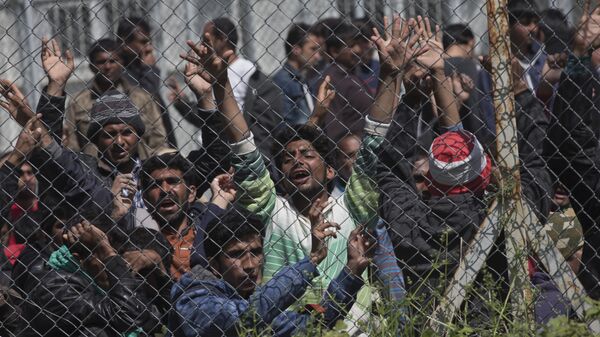The interview came after the controversial deal brokered between the EU and Turkey to return "irregular migrants" from Greece to Turkey came into force on April 4.
"It remains to be seen whether local authorities will be able to relocate migrant without resorting to the use of force," Dokos said.
He remained pessimistic about the implementation of the deal, warning that the country might backslide on human rights as far as refugees are concerned.
"It's quite unclear how fast the process will continue. The whole agreement is problematic and imperfect, but the main thing now is to try to limit any violation of migrants' rights," he pointed out.
Earlier in March, Brussels and Ankara worked out and agreed on a deal under which Turkey pledged to take back all undocumented migrants that had arrived in the European Union in exchange for Syrian refugees on a one-for-one basis.

In return, the European Union pledged to provide a total of 3 billion euros (over 3.3 billion dollars) to Turkey for dealing with refugees, accelerate Turkey's EU accession process and introduce a visa-free regime between Turkey and Europe.
The deal between Brussels and Ankara was quickly condemned by human rights organizations as 'immoral' and potentially illegal, with critics saying that Turkey does not have the resources or capability to care for migrants properly and that many are in danger of ending up back in war-torn Syria.
Europe has been beset by a massive refugee crisis, with hundreds of thousands of undocumented migrants fleeing their home countries in the Middle East and North Africa to escape violence and poverty. The majority of them arrive via Turkey, which is currently home to over two million refugees, mostly from Syria.




